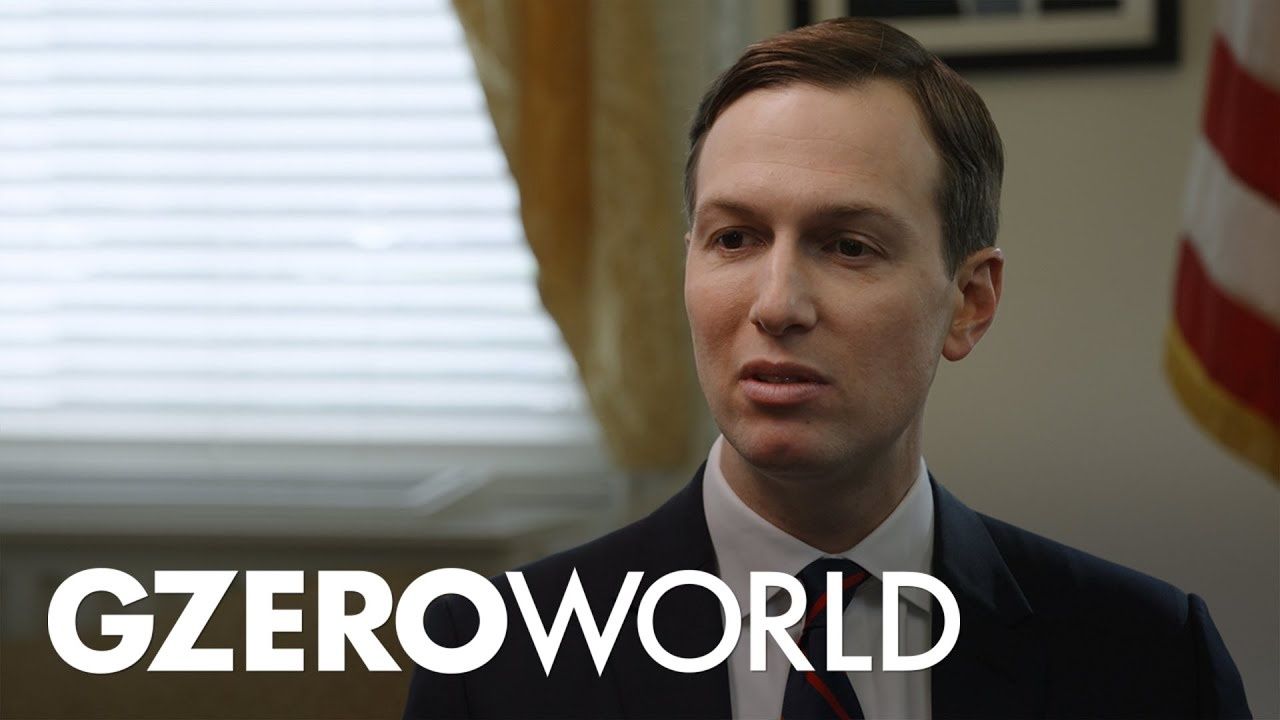January 30, 2020
To understand Jared Kushner's comments in a broader context, here are a few things to consider:
What are the settlements? In the 1967 Six Day War, Israel captured the West Bank from neighboring Jordan, and soon after began setting up communities of Jewish settlers on this land. The West Bank is now home to over 400,000 Jewish Israelis, living in settlements among some 1.9 million Palestinians who, in turn, are not considered citizens of Israel and who must regularly pass through Israeli military checkpoints.
Palestinians see the Israeli settlements as an illegal development of land under military occupation, and much of the international community agrees. Defenders of the settlements say they are important for Israel's security, and that they are on land that is historically Jewish.
What would annexation mean? Right now, the settlements are not technically part of the state of Israel. But Prime Minister Benjamin Netanyahu has said that he wants to change that by annexing them outright. About half of Jewish Israelis support that idea.
Trump's Mideast proposal paves the way for Israel to annex Israeli settlements in the West Bank and to link them with special corridors, leaving the remaining territory for a future Palestinian state. Because some of the outlying settlements would be enclaves of Israel within Palestinian territory, a territorially contiguous Palestinian state would be virtually impossible.
But in his interview with Ian Bremmer, Jared Kushner says that while the Trump administration clearly supports annexation, it also wants Israel to wait until after the upcoming (Israeli) election to move ahead with any annexation plans.
GZERO WORLD with Ian Bremmer airs nationwide on public television Fridays beginning at 11 a.m. ET. Check local listings. The interview will also be published in full on gzeromedia.com on Monday, February 3, at 6 a.m. ET.
Watch more:Kushner to Palestinians: 'Put up or shut up' on peace plan
Read more:Trump's Middle East peace plan isn't meant to be fair
More For You
Prime Minister Narendra Modi, with President of the European Council António Luís Santos da Costa, and President of the European Commission Ursula von der Leyen, at Hyderabad House, in New Delhi, India, on Jan. 27, 2026.
DPR PMO/ANI Photo
On Tuesday, the world’s largest single market and the world’s most populous country cinched a deal that will slash or reduce tariffs on the vast majority of the products they trade.
Most Popular
Sponsored posts
Five forces that shaped 2025
What's Good Wednesdays
What’s Good Wednesdays™, January 28, 2026
Mexican President Claudia Sheinbaum Pardo stands alongside Canadian Prime Minister Mark Carney and US President Donald Trump during the 2026 World Cup draw at the John F. Kennedy Center for the Performing Arts in Washington, D.C., on December 5, 2025.
Deccio Serrano/NurPhoto
Canadian Prime Minister Mark Carney has repeatedly tussled with US President Donald Trump, whereas Mexican President Claudia Sheinbaum has tried to placate him. The discrepancy raises questions about the best way to approach the US leader.
Fighters of the Qassam Brigades, the armed wing of the Palestinian Islamist Hamas movement, attend a rally marking the 35th anniversary of the group's foundation in Gaza City on December 14, 2022.
Photo by Majdi Fathi/NurPhoto
10,000: The number of Hamas officers that the militant group reportedly wants to incorporate into the US-backed Palestinian administration for Gaza, in the form of a police force.
Walmart is investing $350 billion in US manufacturing. Over two-thirds of the products Walmart buys are made, grown, or assembled in America, like healthy dried fruit from The Ugly Co. The sustainable fruit is sourced directly from fourth-generation farmers in Farmersville, California, and delivered to your neighborhood Walmart shelves. Discover how Walmart's investment is supporting communities and fueling jobs across the nation.
© 2025 GZERO Media. All Rights Reserved | A Eurasia Group media company.
